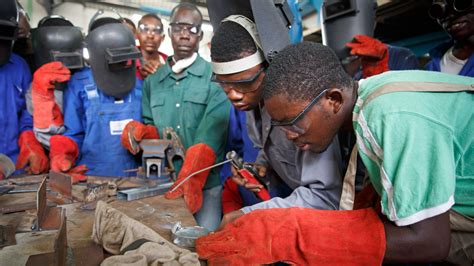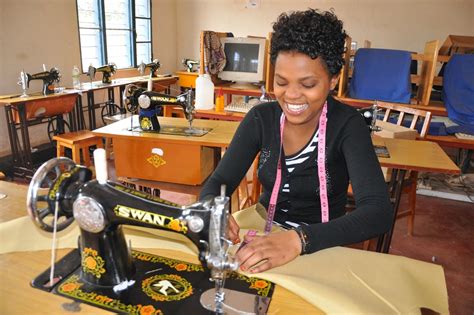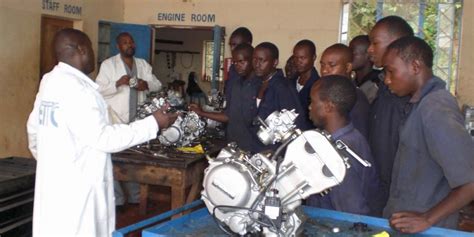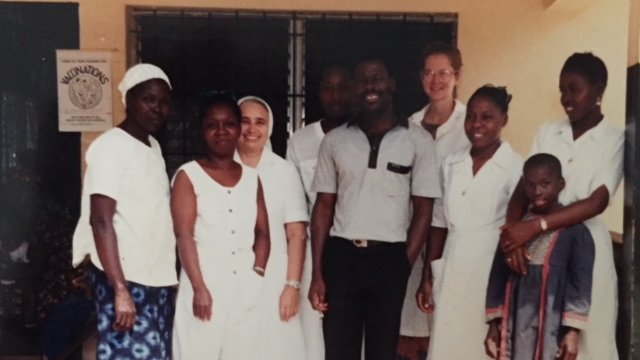Education has a great social importance especially in the modern, complex industrialized societies. Philosophers of all periods, beginning with ancient stages, devoted to it a great deal of attention. Education Trains in skills that are required by the economy.
Schools came into existence several thousand years ago in advanced horticultural and agricultural societies to prepare a select few for leadership and professional positions. Until the last century or so, no society could afford more than a handful of educated people. With the emergence of large-scale industrial and bureaucratic organizations, came a need for an abundant supply of literate and educated people. The school system became a primary vehicle by which a nation’s citizens were taught the three Rs, and the higher education became the custodian of nation’s intellectual capital. Education today is a crucial investment in the economy and major economic resources.
Throughout the world, schools are increasingly being viewed as a branch of the state and as a serving state purposes. The relation between the economy and education can be an exact one. For example, the number
of electricians, plumbers, builders, etc., produced by education limits the number and productive capacity of engineering firms.
In planned economy, normally it is planned years in advance to produce a definite number of doctors, engineers, teachers, technicians and scientists, etc. to meet the social and economic needs of the society.

Accordingly, various theories regarding its nature and objective have come into being. Let me now examine some of the significant functions of education, for the benefit of my readers (The Role of Education in Society Sociology Essay Published: 23rd March 2015). I will only outline five significant attributes.
- To complete the socialization process:
The main social objective of education is to complete the socialization process. The family gets the child, but the modern family tends to leave much undone in the socialization process. The school and other institutions have come into being in place of family to complete the socialization process.
Now, the people felt that it is “the school’s business to train the whole child even to the extent of teaching him honesty, fair play, consideration for others and a sense of right and wrong”.
The school devotes much of its time and energy to the matter such as co-operation, good citizenship, doing one’s duty and upholding the law directly through textbooks and indirectly through celebration of programmed patriotic sentiments are intimated and instilled. The nation’s past is glorified, its legendary heroes respected, and its military ventures justified.
(2) To transmit the central heritage:
All societies maintain themselves, by exploitation of a culture. Culture here refers to a set of beliefs and skills, art, literature, philosophy, religion, music, etc. that are not carried through the mechanism of heredity. They must be learned. This social heritage (African culture) must be transmitted through social organizations. Education has this function of cultural transmission in all societies.
(3) For the formation of social personality:
Individual must have personalities shaped or fashioned in ways that fit into the culture. Education, everywhere has the function of the formation of social personalities.
Education helps in transmitting culture through proper molding of social personalities. In this way, it contributes to the integration, to survive and to reproduce them.
(4) Reformation of Attitudes:
Education aims at the reformation of attitudes wrongly developed by children already. For various reasons the child may have absorbed a host of attitudes, beliefs and disbeliefs, loyalties
and prejudices, jealously and hatred etc. these are to be reformed. It is the function of education to see that unfounded beliefs, illogical prejudices and unreasoned loyalties are removed from the child’s mind, though the school has its own limitations in this regard, it is expected to continue its efforts in reforming the attitudes of the child.
(5) Education for occupational placement:

An instrument of livelihood. Education has a practical and it should help the adolescent for earning his livelihood. Education has come to be today as nothing more than an Instrument of livelihood. It should enable the student to take out his livelihood. Education must prepare the student for future occupational positions; the
youth should be enabled to play a productive role in society. Accordingly, great emphasis has been placed on vocational training. This is where the vocational, technological and agricultural skills are instilled, helping the Liberian child to earn his livelihood.
According to UNICEF and other international organizations, West and Central Africa (WCA) is the region of the world with the largest percentage of young people (32%, UNFPA, 2016) and the highest gender disparity in education. Interestingly, Upper secondary school completion rates are 35% for boys and 25% for girls (UNICEF, 2016). Several factors are responsible for the persistent gender disparities in education. Among them, early and unintended pregnancy, which is often linked to child marriage, poor sexual and reproductive health (SRH) including HIV infection, and school-related gender-based violence (GBV) have a marked impact on the education and prospects of young people (UNESCO, 2016).
UNICEF estimated that three out of five unemployed in sub-Saharan Africa are young people, mostly surviving in the informal economy. In Mali, technical and vocational education and training is being offered to youth in conflict-affected regions of Mopti, Timbuktu, Gao, and Kidal. UNESCO Dakar has also been instrumental in developing a common format for TVET curricula and learning materials for West African countries.
I will briefly review the Technical and Vocational Education /Training within one of Africa’s successful countries in this endeavor. Rwanda, at the end of her civil war years, Technical and Vocational Education and Training (TVET) was an important component within the Rwandese policy to end poverty. A reform of the TVET sector was approved in 2008. School management and leadership are a major challenge in technical and vocational education and training in Rwanda. School management and leadership are described as weak by the government itself. There are no specific qualifications or certifications for school managers. Therefore, effective school management is high on the agenda of the Rwandan Government.
The objectives of any vocational-technical education program usually, according to Dr. El Mohamed Sheriff, contain reflections like to one or more of the following attributes:
1. To provide opportunities for persons who are technologically unemployed to prepare for vacant positions in other occupations.
2. To reduce the rate of unemployment or underemployment caused by insufficient education and training.
3. To provide sufficient opportunity for the practice and the establishment of ethical habits and values of alert diligence in all citizens (those who desire it).
4. To provide sufficient opportunities for all persons who have an interest and would profit from such instruction.
5. To provide basic elements for additional specialized vocational or professional education.
6. To provide personal group relationships and to make persons more responsive to appeals by civic authorities for personal responsibility, etc.
(https://lib.dr.iastate.edu/cgi/viewcontent.cgi?article=7471&context=rtd).
Rwandan Experience:
In Rwanda, ‘vocational training is a system which aims at providing recipients with the necessary knowledge and skills to exercise a profession to be integrated in the labor market. Vocational training includes initial Vocational Training and continuing Vocational Training.’ And Technical Education, is a ‘structured system aimed at providing recipients with the necessary knowledge and skills to continue their studies at tertiary education level or to exercise a profession to be integrated into the labor market Technical Education, on the other hand puts more emphasis on theoretical
education’(http://planipolis.iiep.unesco.org/sites/planipolis/files/ressources/r
wanda_technical_vocational_education_policy.pdf).

Recommendations:
Liberia ’s education system needs to be rebuilt around vocational skills, agriculture economy of business, food production and exporting goods. The system should be redesigned to properly educate as many people as possible in the shortest amount of time.
To achieve these objectives, a National Service –Peace-Corps program needs to be put in place. This program should provide teachers to all parts of Liberia. All students
graduating from Cuttington University, the Universit of Liberia and other universities or colleges, must do two years of national service as teachers in elementary through high schools, located in the various counties and upon completion, they will receive their diplomas. If this program is carefully implemented, there will be no shortage of qualified teachers in the interior counties of the country. And, there will be no need to invite Nigerian teachers to work in Liberia as previously requested. Perhaps, American Peace Corps could be invited to conduct advisory and training for Liberian college students that are assigned in the National Service Program. The American Peace Corps are more familiar with the schools in the interior of Liberia.

Students from agricultural schools such as the University of Liberia ’s Agriculture College and the Agriculture facility at Cuttington would help with seasonal planting and harvesting of food. Like national service plans elsewhere, student participants would be paid a stipend to cover necessities such as room, board and transportation. During the junior year of both high school and university, students would receive instructions in teaching strategies and methods. In this endeavor, all students coming from overseas studies must perform one year of national service to be qualified for gainful employment in government or the private sector of the Liberian economy.
All Junior Colleges in Liberia should integrate each of the following programs.
1. CULINARY ARTS
This training will help students to enter the culinary arts trade, with a career in food preparation in a hotel, club, or restaurant environment, with an emphasis placed on the fundamentals of the culinary arts.
2. BUILDING REPAIR TECHNOLOGY
The Building Repair Technology program prepares students to be skilled building maintenance workers. Students will be given hands-on experience in construction, installation, maintenance, and repair of residential and commercial buildings.
3. RESIDENTIAL CARPENTRY
Residential Carpentry is a pre-apprentice course designed to provide students with entry-level skills in any one of a number of construction trades. Students will be instructed and trained to include tool usage and safety, safety on the work site, construction materials, floor framing, wall and ceiling framing, roof framing, roofing materials, windows and doors, exterior finish, insulation, and interior finish.
4. BUSINESS MANAGEMENT
The instruction in Business Management includes the study of management theory and functions, organizational structures, leadership, planning, the stimulation of change within an organization and relationships between subordinates and superiors. Topics in marketing will center on the mix of the elements of product, price, distribution and promotion.
Students will be given retailing instruction to help them be able to present topics such as, organization, management, and operation of retail institutions with emphasis on merchandising for improvement of inventory and financial control. Topics in salesmanship will provide an overview of selling as a process that provides benefit to both buyers and sellers. Students should be able to do basic Business Mathematics as a portion of the program with topics covered such as trade and cash discounts pricing merchandise, depreciation, financial statement analysis, and simple and compound interest. Students should be Introduced and have hands-on experience with the three most common microcomputer software programs–word processing, database, and spreadsheet.
Thomas Jefferson was correct when he said in a letter to one of his friends in 1816: “Enlighten the people generally, and tyranny and oppressions of body and mind will vanish like the evil spirits at the dawn of day.”
If the youths of Liberia want to have a happy future, they must be willing to make meaningful sacrifices in the services of the unfortunates. We have paid a price for allowing ignorance of mind and spirit to dominate our national culture. We have suffered so much as a people and as a nation to again allow this enemy to dwell amongst us.
The Liberian Government needs to provide the necessary funding for the Ministry of Education to be able to provide quality education opportunities to all Liberia’s children. The success and durability of the Liberian democracy depends on the availability of an educated middle class. The greatest peril to stability in Liberia is illiteracy of Liberian youth. The 14 years of war have taught us the lesson of illiteracy. When seventy-five percent of a country’s population is uneducated and unskilled, it is not a laughing matter; it is a time bomb waiting to explode.
Author: Edmund Zar-Zar Bargblor

Mr. Bargblor is an Educator. He is a graduate of Cuttington University, Liberia; Howard University, Washington, D.C, and Israel Institute of Technology, Haifa, Israel. He is a former Deputy Managing Director of the National Port Authority of Liberia, NPA.; Former Chairman of the Department of Mathematics, Bong Town High School, Bong Mines, Liberia; Instructor of Mathematics, Providence School Department, Rhode Island, USA. He can be contacted at: [email protected]






